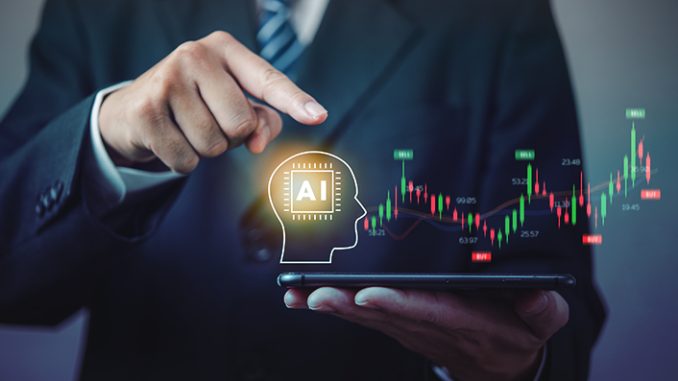
Introduction
In the ever-evolving landscape of financial markets, the role of technology has expanded beyond traditional trading methods. Artificial Intelligence (AI) is at the forefront of this transformation, wielding its predictive capabilities to revolutionize stock market predictions. From sophisticated algorithms to data-driven insights, AI is reshaping how investors make informed decisions and manage risks. This article explores the profound impact of AI on stock market predictions and its implications for the future of investing.
Data Analysis and Prediction Accuracy
AI systems have an unparalleled ability to process vast amounts of financial data swiftly and accurately. Traditional stock market analysis relies on historical data, technical indicators, and fundamental analysis. While these methods are effective, AI-powered models can analyze data on a scale and at speeds that human analysts cannot match. Machine learning algorithms can identify patterns, correlations, and trends that might go unnoticed by human experts.
This data-driven approach enhances prediction accuracy by reducing human biases and subjectivity. AI systems can uncover hidden relationships between different data points, leading to more informed investment decisions.
Sentiment Analysis
AI has also made significant strides in sentiment analysis, which involves assessing market sentiment through the analysis of news articles, social media posts, and other textual data. Sentiment analysis helps investors gauge market sentiment and make decisions based on the collective mood of market participants.
Natural Language Processing (NLP) algorithms enable AI systems to process and understand the sentiment behind textual data. By monitoring social media discussions, news articles, and earnings call transcripts, AI can identify positive or negative sentiments surrounding specific stocks or sectors. This insight can be invaluable in predicting short-term market movements.
Algorithmic Trading
Algorithmic trading, often referred to as “algo trading,” has become a staple in financial markets. AI-powered algorithms execute trades based on pre-defined rules and market conditions. These algorithms can react to market fluctuations within microseconds, far quicker than any human trader can.
AI-driven algorithmic trading strategies can take various forms, including high-frequency trading (HFT) and trend-following strategies. These strategies leverage AI’s analytical prowess to identify arbitrage opportunities and execute trades with precision. While algorithmic trading can increase market efficiency, it also raises concerns about market stability and fairness.
Risk Management
Risk management is a crucial aspect of investment, and AI has significantly improved the ability to assess and mitigate risks. AI models can analyze a portfolio’s exposure to various risk factors and provide real-time risk assessments. This helps investors make proactive decisions to protect their investments during market downturns.
Additionally, AI-driven models can predict potential market shocks and identify risk factors that might not be apparent through traditional analysis. By constantly monitoring market conditions and adjusting investment strategies accordingly, AI can help investors adapt to rapidly changing financial landscapes.
Personalized Investment Advice
Robo-advisors, powered by AI, have gained popularity among individual investors. These digital platforms use AI algorithms to provide personalized investment advice and portfolio management services based on an individual’s financial goals, risk tolerance, and time horizon.
By democratizing access to professional investment advice, robo-advisors have made it easier for people to invest in the stock market. They offer cost-effective solutions and allow investors to automate their investment decisions, reducing the reliance on human financial advisors.
Conclusion
The impact of AI on stock market predictions is undeniable. AI’s ability to analyze vast amounts of data, interpret market sentiment, and execute trades with precision has transformed the way investors approach financial markets. While AI has undoubtedly enhanced prediction accuracy and risk management, it also poses challenges such as algorithmic trading’s impact on market stability and ethical concerns.
The future of stock market predictions will likely see further integration of AI technologies. As AI algorithms continue to evolve, investors and financial institutions will need to adapt to this new era of data-driven decision-making. The key lies in striking a balance between harnessing AI’s predictive power and addressing the associated risks, ultimately ensuring more efficient and resilient financial markets.